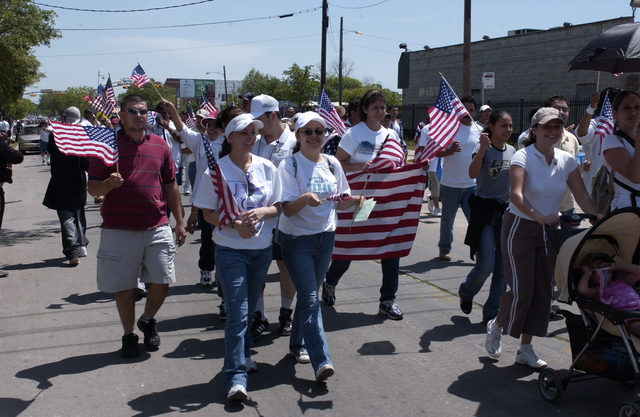Latino voters in Los Angeles appear as a major “asset” in the campaigns of city mayoral candidates. Among the tactics undertaken are the hiring of Latino employees, the expansion of bilingual political marketing and a more efficient approach in trying to these candidates to better communicate with this population in the current period of preparation for the primaries that will take place on June 7th.
Antonio Villaraigosa, the first Latino in more than 130 years to serve as mayor of Los Angeles from 2005–2013, did not find a favorable environment for a Latino leadership when he ran for mayor for the first time in 2001 and lost his position to James Hahn in the second round of voting.
Despite facing racism in the campaign, Villaraigosa, who is a third-generation Mexican American, made use of his identity by learning Spanish and holding bilingual press conferences. “His victory was due, in part, to the strength of the Latino voters he brought to the polls. Since then, Latinos, who make up nearly half of LA's population and a third of the electorate, have matured as a political force.
Councilman Kevin de León seeks influence and support in the Latino community of Los Angeles in his mayoral campaign presenting himself as a fluent Spanish speaker and the son of a Guatemalan single mother who worked as a housekeeper.
“With about 40% of voters undecided, U.S. Rep. Karen Bass (D-Los Angeles) holds a small lead, and De León is a close second, according to a recent poll by the Loyola Marymount University Center for the
Study of Los Angeles. This indecision is due, according to Matt Barreto, a Chicano-American professor of politics at the University of California, Los Angeles (UCLA), by the tendency of the Latino electorate to decide later, after the discursive evaluation of each candidate, according to the publication.
“The 2001 and 2005 mayoral elections were the first ones where we saw Latino engagement at that high of a level”, Barreto said. And today, it’s much, much more engaged. “Latinos do turn out to vote at high rates and they can be consequential in deciding elections. But just like everyone else, that only happens when the investment is made”.
As the largest ethnic group in Los Angeles, accounting for 48% of the population, Latinos hold the most attention from politicians in the electoral process. The rest of the population is 29% white, 12% Asian and 9% black.
Immigration reform is an important issue for many Latinos, but it is not in the top 5, according to a survey conducted by the PAT Brown Institute for Public Affairs and the California Community Foundation, which interviewed 1,500 Latino residents in Los Angeles County, which we
wrote about previously. The effects of the COVID-19 pandemic, homelessness and the economy are their main concerns.
“Political consultant Juan Rodriguez, who is working on billionaire developer Rick Caruso’s campaign, is focusing on bilingual digital and broadcast messaging, including platforms like You Tube. Caruso’s staff has conducted independent research about the needs of the Latino community. Spanish-language ads introducing the candidate, who does not speak Spanish, began appearing on Telemundo weeks ago”, according to L.A. Times.
Karen Bass' team highlights her work with the Community Coalition, a black Latino organization she founded in South Los Angeles decades ago and has secured the support of top Latino leaders in the region, including Villaraigosa, labor activist Dolores Huerta and California State Assembly President Anthony Rendon.
According to the same publication, “Alderman Joe Buscaino is making appearances on Spanish television, speaking mostly English but trying to respond in Spanish when he can.”
Loyola Marymount University Chicano-American Professor of Politics Fernando Guerra told to L.A. Times that “there are still many who believe that electing a Latino means that person will only be focused on the Latino community to the detriment of other communities. By defining him as a Latino candidate, they define him as narrow and incapable of pursuing broader significant policy”.
However, he adds that “with more Latinos serving on offices from city council to U.S. Senate, the idea of a Latino mayor is more familiar than it was in Villaraigosa’s days”.
 nara.getarchive.net
nara.getarchive.net











